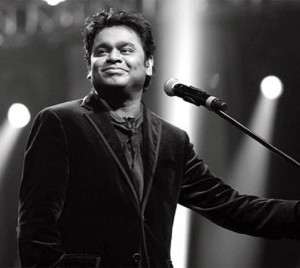The Line Dividing Fatwa and Outburst
The evolution of AR Rahman, popularly referred to as the ‘Mozart of Madras’, is the stuff of a legend. From being listed in Time magazine’s ’10 Best Soundtracks’ of all time for debut composition Roja to winning the Oscar for the background score in Slumdog Millionaire, Rahman has reached dizzying heights in the world of music. In a different vein, the recent fatwa issued by Muslim clerics of the Raza academy in Mumbai sees Rahman pulling his weight in an unfamiliar playground. The clerics found the involvement of highly acclaimed Iranian director Majid Majidi and AR Rahman in the making of a film on the Prophet Muhammad titled ‘Muhammad – Messenger of God’ in bad taste. The musical maestro then wrote a replyto the fatwa in a letter posted on his social networking site Facebook, in a manner typical of the usually soft spoken composer.
One would wonder how a film is being made on the Prophet when any form or image of the Prophet is banned in the Islamic world. Is it banned in the first place? Why is there so much fuss around images and motion pictures of the Prophet? Were AR Rahman and his crew hurting the sentiments of the Muslims? Does an individual heed all sources of authoritative voices, given that s/he has already been sanctioned by other sources of authority? (The film is claimed to have been vetted by both Sunni and Shiite scholars)
The extremist attacks on French magazine Charlie Hebdo and the riots across the world insinuated by the Danish newspaper Jyllands-Posten for publishing cartoons insulting the Prophet are cases that touched a sensitive chord. They were accused of blasphemy. Many people then did not realise that for many Muslims, any image of the Prophet is sacrilegious. But if one goes back in time, you see that the ban was not absolute and Muslim devotional art used to thrive centuries earlier. The Qur’an does not explicitly ban images of the Prophet. Some ahadith totally prohibit all kinds of images, let alone the Prophet’s, while some other hadith tolerate images but do not encourage them. The concern in avoiding pictures of Prophet Muhammad and in some cases of Musa and Ibrahim is to avoid cases of idolatry than anything else.
A fatwa is a religious Islamic ruling and is supposed to be a scholarly opinion on matters related to Islamic law. The fatwa came into popular discourse after the ‘Rushdie Affair’ when Imam Khomeini issued a fatwa against novelist Salman Rushdie. The widely respected Islamic scholar that Khomeini is, the fatwa suggested that according to Islam, Salman Rushdie should be killed if he was found guilty of blasphemy. Salman Rushdie became the scapegoat after he was later blamed as the reason behind many of the riots that took place in different places in India and Pakistan. If you come to think of it, the outburst from the people claiming that it hurt their religious sentiments sounds shallow. The fatwa had clearly been blown out of proportion and nowadays it is related to more as a death threat than a ruling. There have been varied opinions on the subject. Kenan Malik in his article in the Guardian ‘Exploding the fatwa myths’ brilliantly dissects the incident in detail.
AR Rahman’s beautifully designed reply to the fatwa, filled with quotations from the Holy Quran is a great example of how to deal with cases where it is difficult to have similar opinions on a sensitive subject. The different traditions in Islam make a word of authority from a single anointed source a difficult task. Da’wah or in other words the ‘preaching’ or ‘invite to Islam’ has been an integral part of Islam through the ages. And hence, there are many cases where the community members take matters into their own hands and empathise with the ‘ignorant Muslims’ striving to get everyone in the right path. Although their intentions are less harmful and there is nothing wrong in wanting to see everyone attain ‘Jannat’, they are brilliantly adept at making matters worse for the believers and that in-turn brings about a wrong notion of Islam among the non-believers.
Let us for the moment celebrate the creativity, vision, artistry and the musician in AR Rahman. Rahman’s call ‘to set a precedent in clearing conflict with grace and dignity and not trigger violence in words or action’ speaks volumes of the man. A trilogy of movies on the Prophet Muhammad cannot have been timed better. It is the need of the hour especially during a time when there is an overload of information on the audio-visual medium. The film can reach out to people who want to broaden their understanding on the Prophet and more importantly, it is a message to the wider public who does not have much of an understanding of the Prophet (Peace Be upon Him).























Connect
Connect with us on the following social media platforms.